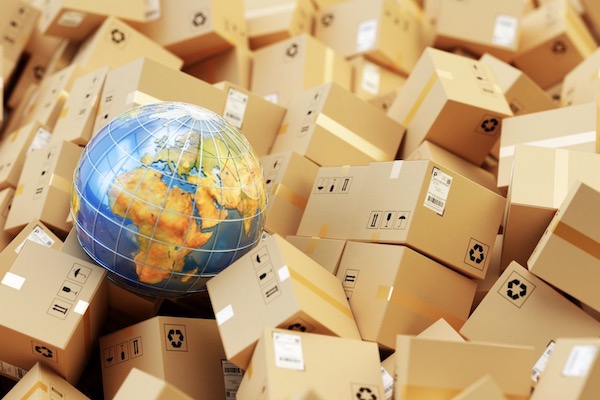Published on the 31/07/2024 | Written by Heather Wright

Cutting costs, speeding up global trade…
Australia and New Zealand have joined more than 80 countries in reaching agreement around ‘groundbreaking’ global rules around ecommerce, including the recognition of e-signatures, and the digitalisation of customs processes.
The Ecommerce Joint Initiative from the World Trade Organisation is designed to make international ecommerce faster and cheaper, facilitating cross-border transactions and reducing barriers to digital trade, and would provide consistent rules to manage digital trade.
“The agreement sets ground rules on digital trade, including e-signatures and e-invoices.”
Led by Australia, Japan and Singapore, the agreement – currently at ‘stabalised text’ phase – has been five years in the making and, sets ground rules on digital trade, including initiatives to promote seamless digital trade both within and across borders, including e-signatures and e-invoices.
Valdis Dombrovskis, European Commission executive vice president and trade commissioner, says the initiative is ‘the first global rules on digital trade’.
“This will facilitate e-transactions, boost innovation and integrate developing countries into the digital economy,” Dombrovskis said on X.
Australia’s Department of Foreign Affairs and Trade says once in force the rules will support Australian businesses in accessing new markets, simplifying transactions, creating improved certainty and lowering costs of online trade, while helping protect Australians online.
Holly Dorber, president of the Australian Services Roundtable, says for all businesses, especially small- and medium-sized companies, the deal will reduce costs and complexities of international commerce and support trust and security for consumers.
When in force, the agreement will require signatories to digitalise customs documents and processes to enable paperless trading and end much of the slow, costly paperwork required at customs, recognise e-documents and e-signatures and maintain electronic transaction frameworks.
The recognition of e-documents extends to electronic invoicing and contracts, with the agreement document noting that electronic invoicing can help improve the cost effectiveness, efficiency, accuracy and reliability of electronic commerce transactions. Signatories commit to ‘endeavour’ to design electronic invoicing frameworks that support cross-border interoperability and sharing best practice.
Single window data exchange is also included to provide a single point of electronic submission for documentation and data for importation, exportation or transit of goods through countries.
“A party’s single window should allow, where possible, the electronic submission of documentation or data in advance in order to begin processing information prior to the arrival of goods with a view to expediting the release of goods upon arrival in its territory.”
The agreement also includes safeguards against online fraudsters and misleading claims about products and provides for closer collaboration between countries on cyber security risks.
The agreement will also ban customs duties on digital content, making permanent earlier ecommerce customs duty moratoriums. Earlier this year the WTO’s 13th Ministerial Conference extended the moratorium for another two years, providing another short reprieve from tariffs for digital services companies, while the wider negotiations continued.
Parties will also work to help developing countries.
The Export Council of Australia put the country’s digital exports at around AU$6 billion in 2017, with forecasts that if exporters fully leveraged digital trade that figure could triple to AU$19 billion by 2030.
In New Zealand a 2023 Digital Trade Review noted the importance of weightless trade for New Zealand, though noted the challenges faced, along with noting clear opportunities to use digital tools to facilitate the movement of physical goods across borders, and issues around trust and movement of data.
Earlier this year the WTO’s 13th Ministerial Conference extended a ecommerce customs duty moratorium for another two years, providing another short reprieve from tariffs for digital services companies, while the wider negotiations continued.
Not all countries are in complete support of the Ecommerce Joint Initiative. The United States has been one of the 91 countries involved in the negotiations, but US World Trade Organisation ambassador Maria Pagan says while the text released was ‘an important step forward’ it falls short and more work is needed, ‘including with respect to the essential security exception’.
A statement on the initiative notes that some members who participated in the negotiations ‘continue to undertake internal consultations or domestic processes’.
“We commit to continued engagement with these members in coming months with the goal of expanding participation.”
Other countries which haven’t joined as sponsors include Brazil, Indonesia, Taiwan and Türkiye.
Participants in the deal will now continue with domestic work, ‘with a view to integrating the outcome of negotiations into the WTO legal framework’.
Making the accord a formal WTO agreement, however, might not be plain sailing as it will require consensus from all 164 WTO countries.



























